By Myracle Lewis, Amelia Gabor and Birdie O’Connell
Contributing Writers, Louisiana Weekly
Editor’s Note: This is the second of a two-part series.

(LSU Manship School News Service) — Beverly Shabazz did not have a job and was seven months pregnant with her second child when her husband, Milton X Scott, was shot and killed outside their home in 1973 by FBI agents attempting to arrest him.
“I was thinking I have these two kids to raise,” she said. “I don’t have any help from their father, and it was a while before I could adjust to the situation.”
Shabazz depended on Social Security benefits for their children and then went back to school so she could work as both a cosmetologist and an elementary school teacher. As they grew up, the children hardly saw her, and they missed the emotional support and stability that their father could have provided.
It was a loss compounded by the fact that the shooting arose from a case of mistaken identity. The FBI agents had thought Scott was an Army deserter, and the fatal battle outside his door would not have happened if they had known he had never been in the Army.
“The toughest day of my life happened before I was even born,” his son, Milton Scott Jr., said recently.
When he was little, Scott said, none of the other children believed him when he said that his father was killed by the FBI before he was born. The mockery so traumatized him that he kept quiet about it until George Floyd was murdered in police custody in 2020, intensifying concerns about Black men killed by law-enforcement officers and the impact on their families.
“I didn’t get to grow up with either parent because my mom always had two jobs, and she was in college,” Shabazz’s daughter, Andrea Grant, said.
Grant, now 52 and a college admissions coordinator, said she and her brother, a businessman in Atlanta, were largely raised by their grandparents.
“I regret that my father never got to meet his grandkids,” Grant said, and “the fact that he will never be able to see all that Milton and I have accomplished.”
Floyd’s death, along with the deaths of others like Tamir Rice, Michael Brown, Alton Sterling and Daunte Wright, show how in the years since Scott’s death, officer-involved shootings have continued to haunt Black communities and rupture families.
While some of these cases resulted in discipline or convictions for officers, others – like Scott’s – ended in the officers’ actions being deemed justifiable. Experts say that regardless of the legal outcome, families have to deal with the agony of losing a loved one and often a loss of income, which can compound the pain.
According to Russell Jones, an emeritus professor at Southern University Law Center, these incidents also escalate a distrust of law enforcement and induce resentment.
“The common thread within all of these incidents is that we don’t have that same right that the white society has to protect our homes,” Jones said.
Former FBI agents Delbert Hahn and William Wood also struggled with the aftermath of Scott’s death.
They had been sent to arrest Scott, a Black Muslim, who charged the officers after they kicked in the front door of his home. During the struggle, Hahn shot Scott twice when he thought Scott had taken Wood’s gun only to learn afterward that Scott had picked up Hahn’s blackjack.
Wood recently said that Scott’s shooting caused him to suffer from post-traumatic stress disorder.
Twenty years after the shooting, Wood taught a PTSD class at the FBI’s training academy in Quantico, Virginia, and invited Hahn, believing he would benefit from it.
“It became personal for me,” Hahn said in an interview with the LSU Cold Case Project. He said the FBI “stuck me in a position where something awful happened, and they didn’t have to do that.”
Hahn said the workshop helped him because he and Wood had never had an in-depth conversation with each other about the incident.
Multiple investigations
Hours after the shooting, the FBI realized that Scott’s identity had been stolen and found the thief, Calvin Wallace, in prison in California. Wallace had juggled at least five stolen aliases in committing various misdemeanors and felonies.
Wallace told the FBI that he had met Scott when Scott was on a trip to California in the early 1970s. Wallace pried into Scott’s background and learned his date of birth, the name of his parents and his Social Security number. Wallace was able to recite the number to agents, missing only one digit.
Wallace lived a transient life. When a childhood acquaintance, Robert King, saw him more than 20 years ago in San Diego, he said Wallace showed signs of heroin addiction. Wallace, then 82, died last October in a San Diego nursing home.
Black leaders demanded investigations into Scott’s death, which came just eight months after an East Baton Rouge sheriff’s deputy had killed two Black students at Southern University.
Emmett Douglas, then the president of the Louisiana NAACP, questioned how two trained FBI agents could not subdue a man weighing less than 180 pounds without shooting him.
Neither of the agents was suspended as federal and state authorities looked into what happened.
J. Stanley Pottinger, then the assistant U.S. general attorney for civil rights, instructed the FBI to conduct a preliminary civil rights investigation.
FBI documents say that the bureau did not request an interview with Shabazz shortly after the shooting because she had seemed hostile.
“Well, I was upset because of the way they treated him. I wanted to tell my story, but I never got the chance to,” Shabazz said recently.
The FBI chose not to talk to many neighbors since the area, bureau documents said, was frequented by Nation of Islam members. Authorities feared that would worsen racial tensions and lead to more confrontations like one on North Boulevard 19 months earlier that led to the death of two police officers and two Black men.
A city sanitation worker gave the FBI a signed statement saying he saw a Black man pushing two white men off the porch of Scott’s house before a car blocked his vision of the fight. Seconds later he heard two shots fired.
Two other sanitation workers and one of Scott’s neighbors only noticed what was happening after the shots rang out, and bureau investigators determined that the agents had shot Scott in self-defense.
On Nov. 19, 1973, an East Baton Rouge Parish grand jury also chose not to bring charges against the agents.
One of the jurors, Baton Rouge native George Kilcrease, still believes the agents acted in good faith.
“In hindsight, maybe they could have approached it a little differently, he said, but “all the facts of the case led the jury to conclude that they acted reasonably. If Mr. Scott would’ve been white or Black, I don’t think that played into the FBI’s actions of that day.”
Shabazz’s legal struggles
Shabazz also sought redress in a civil case.
In May 1974, she hired Baton Rouge attorney Walter Dumas, who filed a $1 million lawsuit against the FBI under the Federal Tort Claims Act, claiming that Scott’s death was a “direct and proximate result of the negligence, carelessness, and unlawful conduct.”
Dumas did not respond to a request for comment. Shabazz also hired other lawyers, but the case was eventually dismissed by U.S. District Judge Gordon West, who noted that her complaints continually gave the impression that the FBI agents shot and killed the wrong man.
“This is not so,” he wrote. “They shot and killed the man they intended to shoot and kill. They did not shoot the man because he was a deserter from the Army but because he physically attacked and attempted to destroy the two FBI agents.”
Justice Department officials spoke with Scott’s family in 2020 after Congress encouraged the department to investigate a wider range of cold cases from the civil rights era. But the case was closed again in September 2021.
With the grand jury’s decision not to indict, the failure of Shabazz’s lawsuits in civil court and the FBI’s decision to close its new investigation, the family finds memories of Scott and the opportunity to tell his story as the best way to honor him today.
Shabazz later remarried and still lives in Baton Rouge. Now 75, she said Scott had made her “proud to be Black” and “proud to be a Black woman. I was proud of my Black husband.”
‘I’m sorry for her and her family’
On the day of Scott’s death, FBI agents Hahn and Wood were treated at the hospital for minor injuries. When Hahn returned home, he did not tell his wife anything.
“I remember I had blood on the suit, mostly mine,” he said. “I took it off and stuffed it under the bed. It was there for a year.”
Retired FBI agent Theodore “Ted” Jackson, a Black agent who had investigated the shooting at Southern University months before the Scott shooting, said it is important for law-enforcement officers to talk things out after troubling events, especially a fatal shooting.
They never know what the day will bring, but “they all want to go home to their families” after work, Jackson said.
Hahn, now 89, said he believes the bureau should have performed a thorough background check before assigning the deserter case to him. In fact, the FBI, which had earlier quit checking fingerprints of deserters, quickly returned to that practice after Scott was killed.
Hahn said that the force used on Scott was justified. But he does wish there had been more time for negotiation.
In a recent interview, Wood, Hahn’s partner that day, said: “I still have PTSD from a number of incidents. This is one of the main ones.”
Hahn still lives in Baton Rouge. But he said he is not interested in a sit-down or attempt at reconciliation with the Scott family since it would not change what happened. He also doubts that it would bring Shabazz peace.
“I wasn’t happy that Milton Leon Scott was dead,” Hahn said. “I’m sorry for her and her family. I understand they probably don’t like me. That doesn’t bother me; I don’t expect them to. I’d feel the same way if somebody shot my husband or my father.”
This story was written by Myracle Lewis and reported by Lewis, Amelia Gabor, Birdie O’Connell, McKinley Cobb, Brooke Couvillon, Hannah Rehm and MacKenzie Wallace. A companion video by Maria Pham is available at:

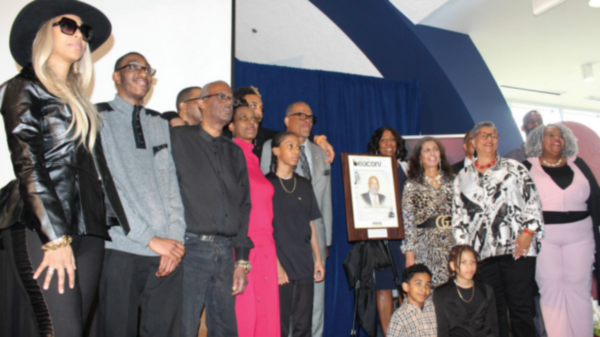

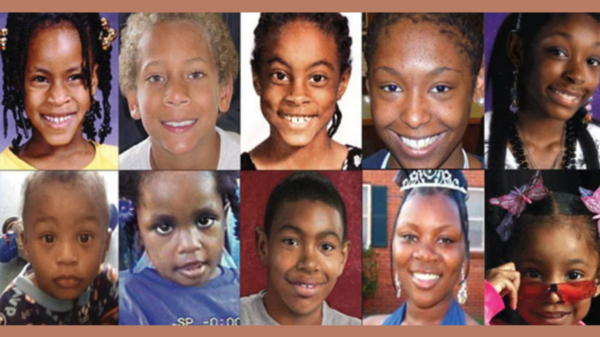

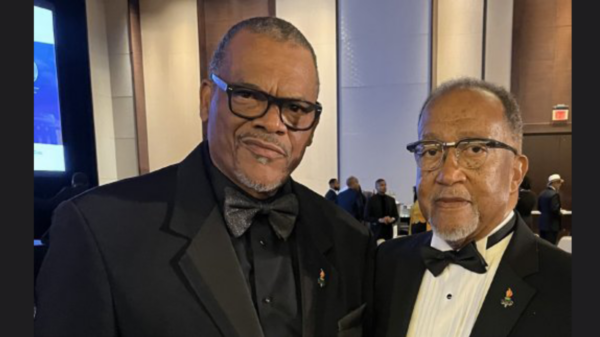
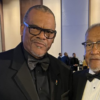
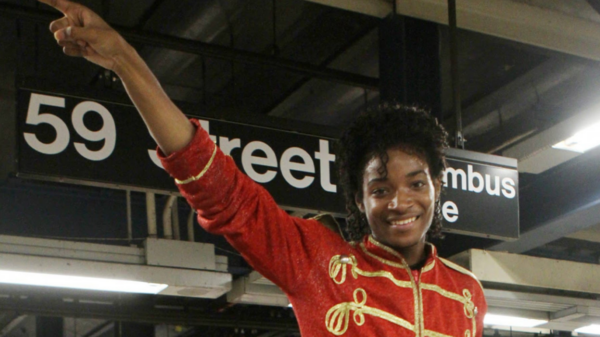

You must be logged in to post a comment Login